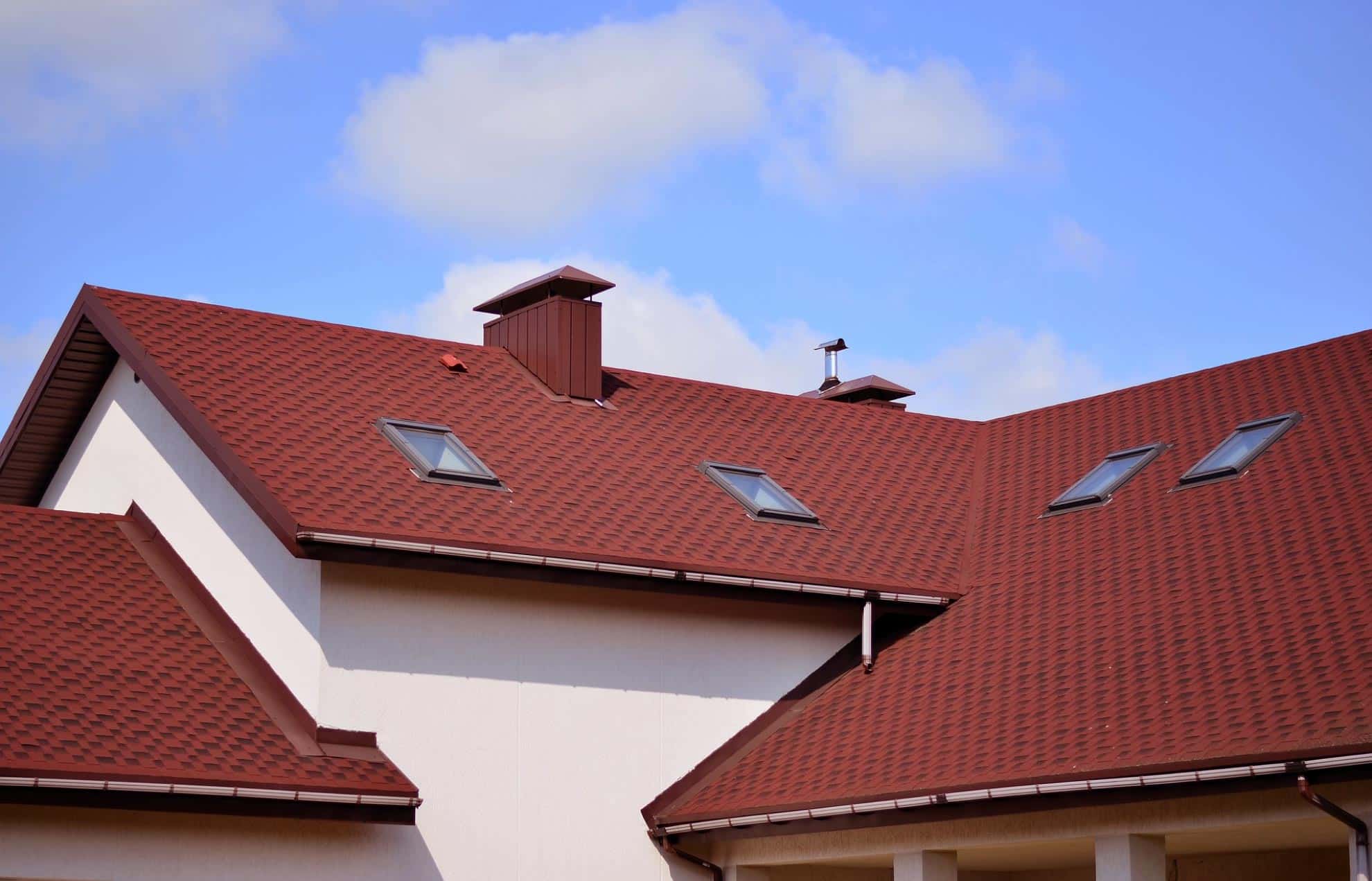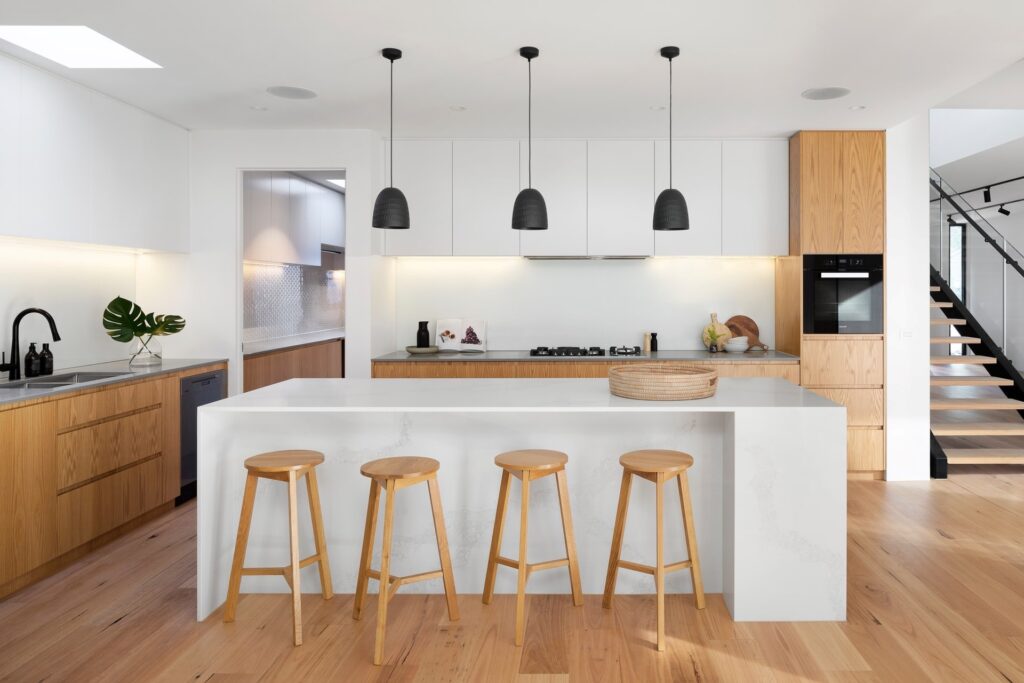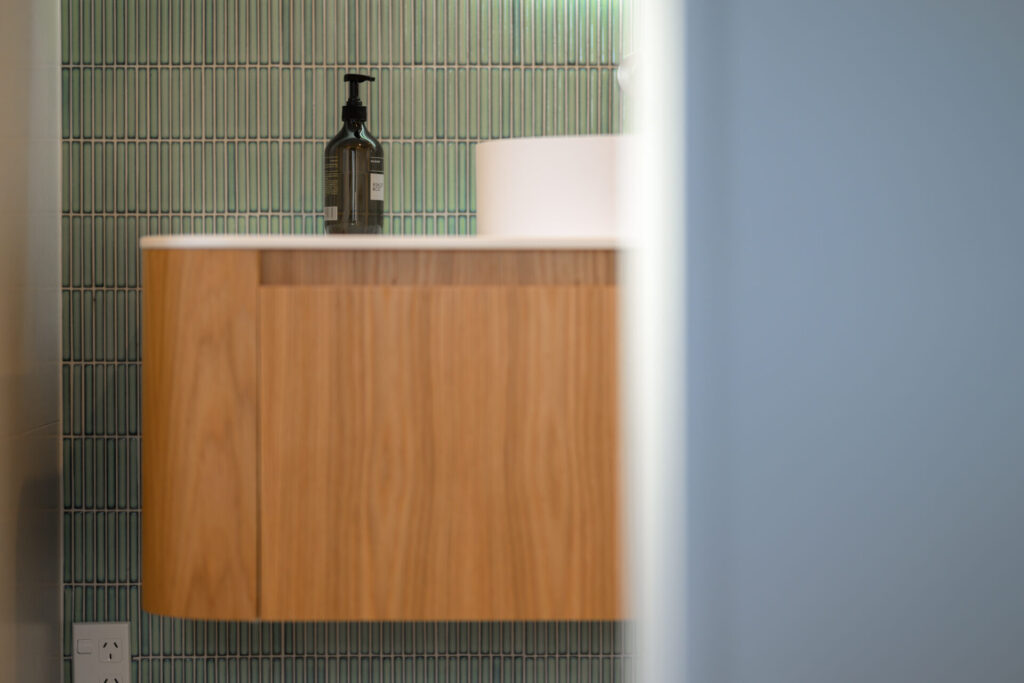Welcome to our comprehensive guide on the cost of renovating a house in Christchurch. Whether you’re looking to update your kitchen, expand your living space, or completely overhaul your home, understanding the potential expenses is crucial. In this post, we’ll break down the various factors that influence renovation costs, provide detailed cost examples, and offer tips to help you manage and reduce your expenses. With the booming interest in home renovations across Christchurch, it’s essential to be well-informed before embarking on your project. So, let’s dive in and explore everything you need to know about renovating your home in this vibrant city.
On average, the cost of renovating a house in Christchurch ranges from $20,000 to $100,000, depending on the scope of the project. Specific costs include $15,000 to $30,000 for a kitchen remodel, $10,000 to $25,000 for a bathroom upgrade, and $5,000 to $15,000 for living space improvements. Factors such as the quality of materials, labor costs, and unexpected issues can significantly impact the final budget. Proper planning and budgeting are essential to manage and control renovation expenses effectively.
Understanding The Basics Of Home Renovation Costs
When embarking on a home renovation journey, understanding the basics of renovation costs is crucial. Home renovations can vary widely in price depending on a multitude of factors. Here’s a closer look at some of the key elements that influence the cost of renovating a home:
Factors Influencing Costs:
Size of the Renovation
The size of the renovation plays a significant role in determining the overall cost. A full house renovation will naturally be more expensive than updating a single room. Larger projects often require more materials, labor, and time, leading to higher costs. For instance, renovating a kitchen or bathroom typically costs more per square meter compared to renovating a bedroom or living room due to the need for specialized fixtures and fittings.
Scope of Work
The scope of work refers to the extent and nature of the renovations. Cosmetic changes, such as painting walls, updating fixtures, or replacing flooring, are generally less costly than structural changes. Structural renovations might include knocking down walls, adding extensions, or changing the layout of the house, all of which require more complex work and professional expertise. These changes can significantly increase the renovation costs.
Quality of Materials and Finishes
The quality of materials and finishes chosen for the renovation will heavily impact the cost. High-end materials, such as marble countertops, custom cabinetry, or premium hardwood flooring, come with a higher price tag compared to standard options. Similarly, choosing designer fixtures and fittings will elevate the overall expense. Homeowners should decide on a budget and prioritize where they want to splurge and where they can save.
Labor Costs
Labor costs are another major factor in home renovation expenses. The cost of labor can vary depending on the complexity of the work, the location of the property, and the experience level of the contractors. Skilled tradespeople such as electricians, plumbers, and carpenters may charge higher rates due to their specialized skills. Additionally, labor costs can be influenced by the duration of the project—longer projects often incur higher labor costs.
Unforeseen Issues
Renovations often come with unexpected surprises that can drive up costs. Unforeseen issues such as structural problems, outdated electrical systems, or hidden water damage can arise once the renovation work begins. These issues may require additional work and materials to rectify, leading to increased expenses. It’s wise to set aside a contingency budget to cover any unexpected costs that may occur during the renovation process.
Understanding these factors can help homeowners plan their renovation budget more effectively. By considering the size of the project, the scope of work, the quality of materials, labor costs, and potential unforeseen issues, homeowners can better anticipate the overall costs and make informed decisions throughout the renovation journey. Proper planning and realistic budgeting are key to a successful and financially manageable home renovation.
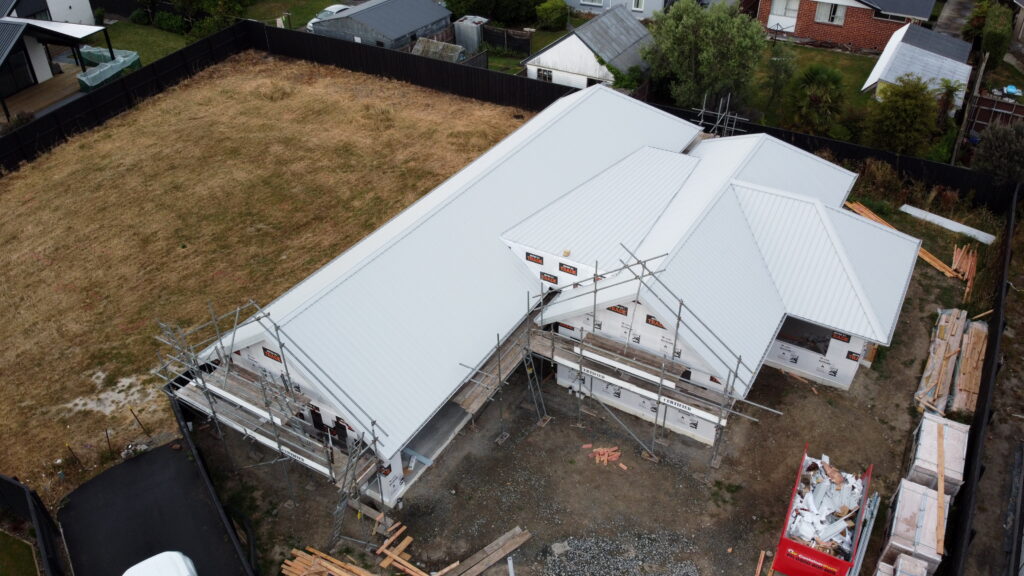
Breakdown Of Renovation Costs In Christchurch
Average Costs
Renovating a house in Christchurch can vary significantly based on the scope and quality of the materials used. On average, homeowners can expect to spend anywhere from $20,000 to $100,000 or more on a full renovation. Smaller projects, such as minor updates or single-room renovations, might cost between $5,000 and $15,000. Larger, more extensive renovations, such as a full house overhaul, can exceed $150,000, especially if structural changes or high-end finishes are involved.
Room-by-Room Analysis
Kitchen
Average Cost: Renovating a kitchen typically ranges from $10,000 to $30,000, depending on the size and the materials chosen.
Key Considerations
Appliances: Investing in modern, energy-efficient appliances can significantly impact your budget. High-end brands and custom-built options can drive costs higher.
Cabinetry: Custom cabinetry is more expensive than pre-fabricated options but offers a personalized touch and better use of space.
Countertops: Materials like granite, marble, or quartz are pricier but offer durability and a luxurious finish. Laminate and tile are more budget-friendly options.
Bathroom
Average Cost: A bathroom renovation usually costs between $5,000 and $20,000.
Key Considerations
Fixtures: High-quality fixtures, including sinks, faucets, and showerheads, can add to the overall cost but enhance functionality and aesthetics.
Tiling: The type and amount of tile used (ceramic, porcelain, natural stone) will affect costs. Custom patterns and high-end materials increase expenses.
Plumbing: Moving plumbing fixtures or upgrading the plumbing system can significantly increase costs. It’s essential to consider this during the planning phase.
Living Spaces
Average Cost: Renovating living spaces can cost from $5,000 to $15,000 per room.
Key Considerations
Flooring: Options range from affordable laminate and vinyl to more expensive hardwood and tile. Carpet is another option, particularly for comfort and warmth.
Lighting: Modern lighting solutions, including recessed lights, chandeliers, and smart lighting systems, can add to the cost but greatly enhance the room’s ambiance.
Insulation: Upgrading insulation is crucial for energy efficiency and comfort, particularly in older homes.
Bedrooms
Average Cost: Bedroom renovations generally range from $3,000 to $10,000 per room.
Key Considerations
Storage: Built-in wardrobes and custom storage solutions can maximize space but add to the cost.
Flooring: Options similar to living spaces, including carpet for a cozy feel or hardwood for a sleek look.
Painting: A fresh coat of paint is a relatively inexpensive way to update the look of a bedroom, with costs varying based on the quality of paint and labor.
Outdoor Areas
Average Cost: Renovating outdoor areas can vary widely, typically costing between $5,000 and $30,000.
Key Considerations
Decking: Material choices (wood, composite) will affect cost, with composite decking being more durable and lower maintenance but more expensive.
Landscaping: Plant selection, garden beds, and lawn installation can add to costs. Professional landscaping services offer design and installation, impacting the budget.
Fencing: Materials (wood, vinyl, metal) and the length of the fence will influence overall expenses.
When planning a renovation in Christchurch, it’s essential to consider these average costs and key considerations for each room and outdoor space. This comprehensive breakdown can help you budget effectively and make informed decisions to create a comfortable and stylish home tailored to your needs.
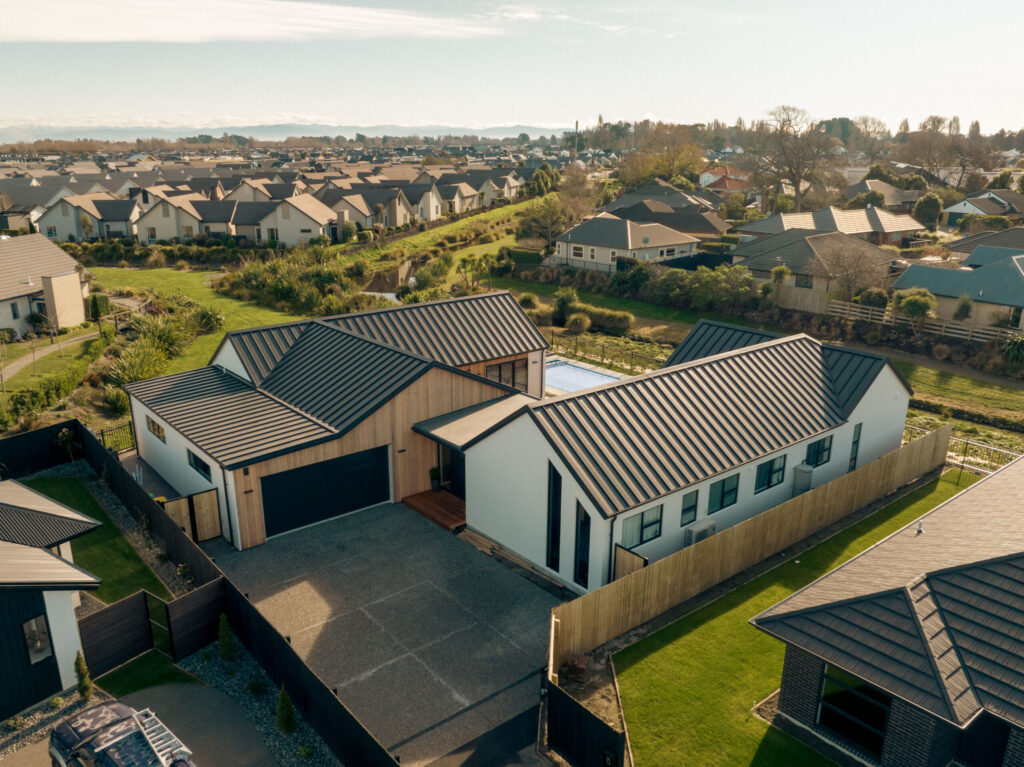
Detailed Cost Examples
Case Study 1: A Modest Renovation of a 3-Bedroom Home
Let’s dive into the details of a modest renovation project for a typical 3-bedroom home in Christchurch. This type of renovation often includes essential updates like repainting walls, updating the kitchen and bathroom, and installing new flooring. Such a project is perfect for homeowners looking to refresh their living space without breaking the bank.
Painting and Decorating
A fresh coat of paint can significantly enhance the aesthetic appeal of your home. Expect to spend around $5,000 to $10,000 for professional painting services, including labor and materials.
Kitchen Upgrade
Upgrading your kitchen can be one of the most impactful changes. For a modest renovation, this might include replacing countertops, installing new cabinetry, and updating appliances. The cost typically ranges from $15,000 to $30,000.
Bathroom Renovation
Updating the bathroom with new fixtures, tiling, and possibly a new shower or bathtub can transform the space. A modest bathroom renovation can cost between $10,000 and $20,000.
Flooring Replacement
New flooring can dramatically change the look and feel of your home. Depending on your choice of material, such as laminate, hardwood, or carpet, costs can range from $5,000 to $15,000 for a 3-bedroom house.
Total Estimated Cost
For a modest renovation, homeowners can expect to spend between $35,000 and $75,000. This range covers all the basic updates needed to give the home a fresh, modern look.
Case Study 2: A High-End Renovation with Luxury Finishes
For those seeking a more luxurious touch, a high-end renovation involves top-quality materials and finishes, state-of-the-art appliances, and custom designs. Let’s explore what this entails for a 3-bedroom home in Christchurch.
Custom Kitchen Remodel
A high-end kitchen remodel includes custom cabinetry, premium countertops like granite or marble, and the latest high-tech appliances. This can range from $50,000 to $100,000 or more.
Luxurious Bathroom Upgrade
Incorporating features such as a walk-in shower, a freestanding bathtub, high-end fixtures, and heated floors can turn your bathroom into a spa-like retreat. Expect to invest between $30,000 and $50,000.
High-Quality Flooring
Opting for premium materials like hardwood, stone, or luxury vinyl can significantly increase your costs. For a high-end renovation, flooring costs can range from $20,000 to $40,000.
Designer Touches
Adding custom-built furniture, designer lighting, and bespoke decor can enhance the luxury feel. This can add another $10,000 to $30,000 to your budget.
Total Estimated Cost
A high-end renovation can cost anywhere from $120,000 to $220,000, providing a sophisticated and lavish living space that exudes quality and style.
Case Study 3: A Major Renovation Involving Structural Changes and Extensions
For homeowners looking to undertake a significant transformation, a major renovation involving structural changes and extensions is the way to go. This type of project often includes adding new rooms, altering the layout, and making substantial improvements to the home’s infrastructure.
Structural Changes
Major structural changes, such as removing or adding walls, can drastically change your home’s layout. Costs for structural work alone can range from $20,000 to $50,000.
Home Extensions
Adding new rooms or extending existing ones increases your home’s square footage and functionality. Home extensions typically cost between $2,500 and $4,000 per square meter. For a sizeable extension, this could amount to $50,000 to $150,000.
Upgraded Systems
Upgrading electrical, plumbing, and HVAC systems is often necessary during a major renovation. This can add an additional $10,000 to $30,000 to your budget.
Exterior Improvements
Improving the exterior with new siding, roofing, or landscaping can enhance your home’s curb appeal. Costs for these improvements can range from $15,000 to $40,000.
Total Estimated Cost
For a major renovation involving structural changes and extensions, homeowners should be prepared to spend between $150,000 and $300,000 or more, depending on the project’s scope and complexity.
Understanding the detailed costs associated with different types of renovations can help homeowners in Christchurch make informed decisions. Whether you opt for a modest refresh, a high-end upgrade, or a major transformation, knowing the potential expenses ensures you are well-prepared to create your dream home.

Common Hidden Costs
Renovating a house can be an exciting project, but it often comes with unforeseen expenses. It’s essential to anticipate these hidden costs to avoid budget overruns and ensure a smoother renovation process. Here are some common hidden costs you might encounter:
Unexpected Issues
One of the most significant hidden costs in home renovation is dealing with unexpected issues that arise once work begins. Structural problems can be a major concern. For instance, you might discover rotting wood, foundation issues, or termite damage that needs immediate attention. These problems not only require additional labor but also expensive materials to fix.
Outdated wiring and plumbing are another frequent issue. Older homes, especially those in Christchurch, might have outdated electrical systems or plumbing that doesn’t meet current codes. Rewiring or replumbing your house can be a costly but necessary upgrade to ensure safety and functionality. Always include a contingency budget to cover such surprises.
Permits and Inspections
Renovation projects often require various permits and inspections to comply with local building regulations. The costs for these permits can add up quickly, depending on the scope of your project. In Christchurch, building permits are necessary for most structural changes, electrical work, plumbing modifications, and even some exterior improvements.
Inspections are another cost to consider. Local authorities will need to inspect the work at various stages to ensure it meets all safety and quality standards. These inspections are crucial but can sometimes lead to additional expenses if modifications are required to pass the inspection. It’s wise to familiarize yourself with Christchurch’s specific regulations and factor these costs into your budget from the start.
Temporary Accommodation
If your renovation project is extensive, you might need to move out of your home temporarily. This is especially true if you are dealing with structural changes, major plumbing or electrical work, or anything that affects essential living areas like the kitchen or bathroom. Temporary accommodation costs can vary widely depending on your needs and preferences.
Whether you choose to stay in a hotel, rent a short-term apartment, or stay with friends or family, these expenses can quickly add up. Don’t forget to account for additional costs such as storage for your belongings if your entire home is being renovated. Planning for temporary accommodation can help alleviate stress and ensure your renovation proceeds smoothly.
Waste Disposal
Renovation projects generate a significant amount of waste, from old building materials to packaging for new products. Properly disposing of this waste is not only essential for the environment but also often required by local regulations. The cost of waste disposal can be higher than you might expect, especially if you’re undertaking a large project.
You may need to rent a skip bin or hire a waste removal service. These services can charge based on the volume and type of waste. Additionally, some materials may require special handling or disposal methods, further increasing costs. Including waste disposal in your renovation budget is crucial to avoid any surprises.
By understanding and planning for these common hidden costs, you can create a more accurate and realistic budget for your renovation project. This foresight helps prevent financial strain and ensures your renovation is completed successfully.
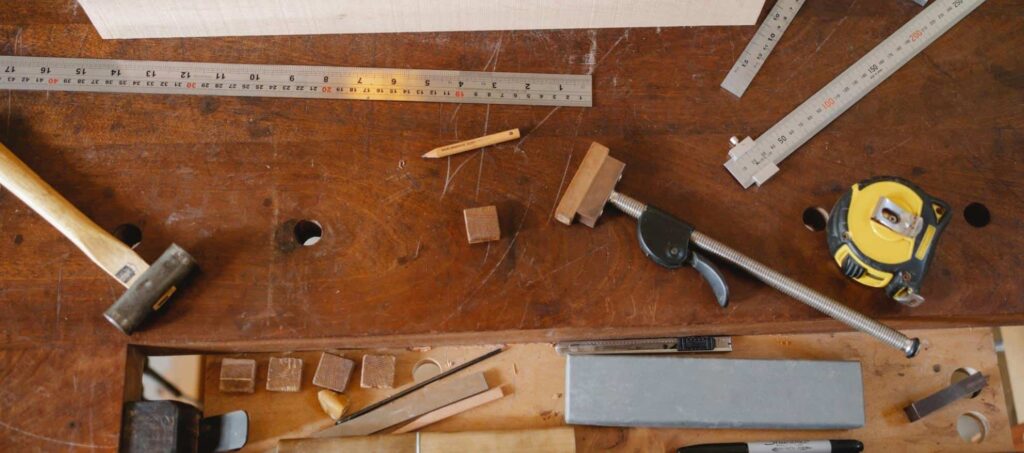
Tips to Manage And Reduce Renovation Costs
Planning and Budgeting
When it comes to renovating your home, a detailed plan and a realistic budget are your best friends. Start by outlining every aspect of your renovation project. This includes the scope of work, materials needed, and a timeline. A well-thought-out plan will help you foresee potential issues and address them before they become costly problems. Your budget should be realistic, taking into account not just the obvious costs like materials and labor but also a contingency fund for unexpected expenses. Keeping track of your spending and staying within your budget can significantly reduce financial stress and help you avoid overspending.
DIY vs. Professional Help
One of the key decisions you’ll face during a renovation is determining what tasks you can tackle yourself and when you should hire professionals. DIY projects can save money, especially for simpler tasks like painting, landscaping, or installing new fixtures. However, it’s crucial to be honest about your skill level. Attempting complex tasks like electrical work or plumbing without the necessary expertise can lead to expensive mistakes. For critical or highly technical jobs, hiring a professional can actually save money in the long run by ensuring the work is done correctly and safely the first time around.
Choosing Materials
Selecting materials is another area where you can manage costs effectively without sacrificing quality. Research and compare different materials to find cost-effective options that still meet your standards for durability and aesthetics. For example, laminate flooring can be a budget-friendly alternative to hardwood, offering a similar look at a fraction of the price. When choosing materials, also consider their maintenance requirements and long-term durability. Sometimes, paying a bit more upfront for higher-quality materials can save money on repairs and replacements down the line.
Get Multiple Quotes
Finally, always get multiple quotes before committing to a contractor. Comparing quotes from different contractors not only gives you an idea of the going rate for your project but also helps you identify any outliers. A quote that is significantly lower than others might seem tempting but could indicate that the contractor is cutting corners or might hit you with hidden costs later. Conversely, the highest quote isn’t necessarily a guarantee of the best quality. Look for a contractor who offers a fair price and has a solid reputation for quality work. Checking reviews and asking for references can also help you make an informed decision.
By carefully planning and budgeting, knowing when to DIY and when to hire professionals, choosing cost-effective materials, and getting multiple quotes, you can manage and reduce your renovation costs effectively. This strategic approach ensures that your renovation is not only affordable but also successful and satisfying.
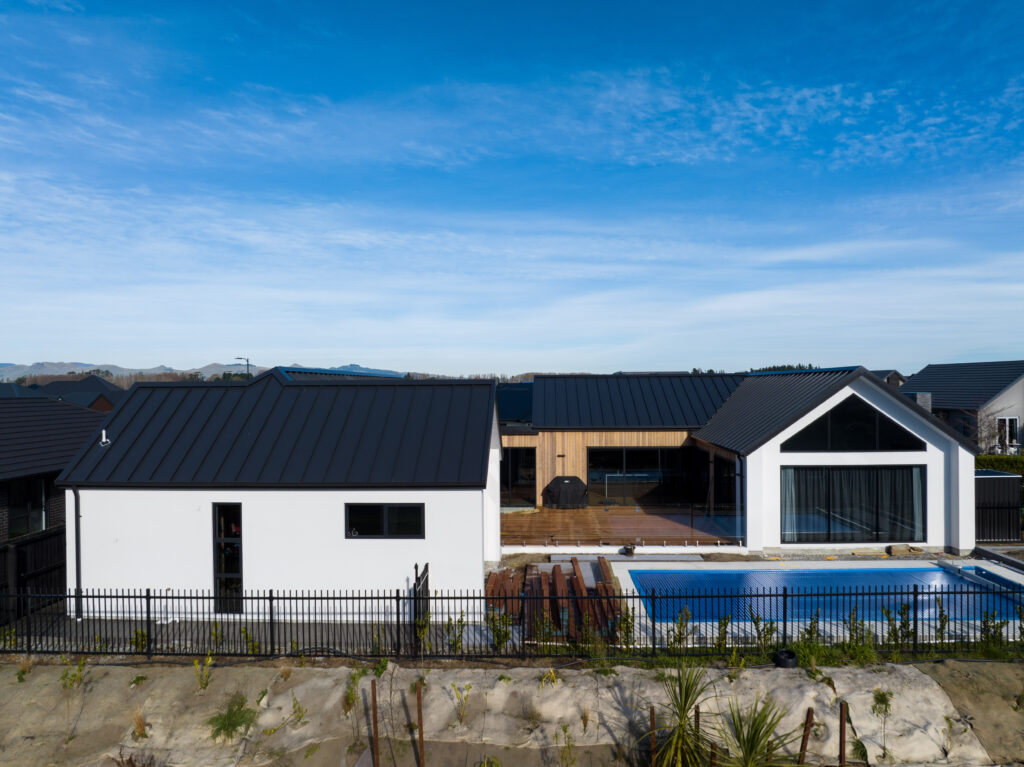
Financing Your Renovation
When it comes to financing your home renovation in Christchurch, there are several options available to suit different financial situations and project scopes. Whether you’re planning a small remodel or a large-scale renovation, understanding the various financing options can help you make an informed decision that aligns with your budget and long-term financial goals.
Home Equity Loans
How They Work
Home equity loans allow you to borrow against the equity you have built up in your home. The loan amount is typically based on the difference between your home’s current market value and your mortgage balance. This type of loan is often referred to as a second mortgage and is usually disbursed in a lump sum.
Pros
Fixed Interest Rates: Home equity loans generally come with fixed interest rates, which means your monthly payments remain consistent over the life of the loan.
Potential Tax Benefits: In some cases, the interest paid on a home equity loan may be tax-deductible, though it’s advisable to consult with a tax professional.
Large Loan Amounts: Because these loans are secured by your home, they often allow you to borrow larger sums than other types of loans.
Cons
Risk of Foreclosure: Since your home is used as collateral, failure to repay the loan can result in foreclosure.
Closing Costs: Home equity loans often come with closing costs and fees similar to those of a primary mortgage.
Personal Loans
When They Might Be a Better Option
Personal loans are unsecured loans, meaning they don’t require collateral. These loans can be a good option if you don’t have significant equity in your home or if you prefer not to use your home as collateral.
Pros
Quick Approval: Personal loans generally have a faster approval process compared to home equity loans.
No Collateral Required: Since these loans are unsecured, you don’t risk losing your home if you default on the loan.
Cons
Higher Interest Rates: Personal loans typically have higher interest rates compared to secured loans.
Smaller Loan Amounts: The amount you can borrow with a personal loan is usually lower than with a home equity loan.
Renovation Mortgages
Specific Loans Designed for Home Improvements
Renovation mortgages, such as the FHA 203(k) loan or Fannie Mae’s HomeStyle Renovation mortgage, are specifically designed for homeowners looking to finance both the purchase and renovation of a home or just the renovation of an existing home.
Pros
Combines Purchase and Renovation Costs: These loans allow you to combine the cost of purchasing a home with the cost of renovations into a single mortgage.
Lower Interest Rates: Renovation mortgages often come with lower interest rates compared to personal loans.
Cons
Complex Approval Process: These loans typically require detailed renovation plans and cost estimates, which can make the approval process more complex and time-consuming.
Restrictions: There may be restrictions on the types of renovations that can be financed with these loans.
Government Grants and Incentives
Available Options in Christchurch
In Christchurch, various government grants and incentives are available to assist homeowners with renovation projects. These programs aim to promote energy efficiency, sustainability, and earthquake resilience.
Pros
Financial Assistance: Grants and incentives can significantly reduce the overall cost of your renovation project.
Encouragement for Sustainable Practices: Many programs encourage environmentally friendly and sustainable renovation practices.
Cons
Eligibility Requirements: Government grants and incentives often come with specific eligibility criteria, such as income limits or project type restrictions.
Application Process: The application process for grants can be competitive and may require detailed documentation.
In conclusion, financing your renovation involves careful consideration of various options. Home equity loans, personal loans, renovation mortgages, and government grants each have their own advantages and disadvantages. By understanding these options, you can choose the best financing method that aligns with your renovation goals and financial situation.
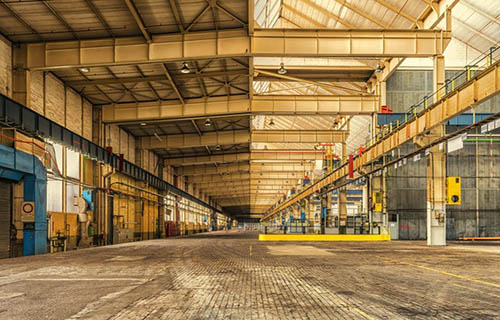
Hiring The Right Contractor
Hiring the right contractor is a pivotal step in ensuring your renovation project in Christchurch runs smoothly and meets your expectations. This section delves into the essential aspects of finding and hiring the best contractor for your needs, focusing on thorough research, effective interviewing techniques, and the critical elements of contracts and agreements.
Research and Recommendations
Finding reputable contractors in Christchurch begins with thorough research. Start by seeking recommendations from friends, family, and colleagues who have undergone similar projects. Personal experiences can provide invaluable insights into a contractor’s reliability and quality of work. Additionally, online platforms such as Trade Me, Builderscrack, and Houzz offer reviews and ratings that can help you gauge the reputation of various contractors. Don’t forget to check professional associations like the New Zealand Certified Builders Association and the Master Builders Association, as membership often indicates a commitment to high standards and professionalism.
When researching contractors, look for those with extensive experience in the specific type of renovation you are planning. A contractor who specializes in kitchen remodels might not be the best fit for a full house renovation. Furthermore, review their portfolio to see examples of their previous work. This can give you a sense of their style and attention to detail, ensuring it aligns with your vision.
Interviewing Contractors
Once you have a shortlist of potential contractors, the next step is to conduct interviews. This process is crucial for assessing their suitability for your project. Start with an initial phone call to gauge their availability and interest. If they pass this initial screening, arrange a face-to-face meeting to discuss your project in detail.
During the interview, ask key questions such as:
- How long have you been in business?
- Can you provide references from recent clients?
- What type of insurance do you carry?
- How do you handle project changes or unexpected issues?
- Can you provide a detailed written estimate?
These questions help you understand the contractor’s experience, reliability, and approach to problem-solving. It’s also important to discuss timelines and whether the contractor has any current commitments that could delay your project. Pay attention to their communication style and whether they listen carefully to your needs and preferences. Good communication is essential for a successful renovation project.
Contracts and Agreements
A detailed and clear contract is essential to protect yourself and ensure that both parties have a mutual understanding of the project’s scope, cost, and timelines. When drafting a contract, make sure it includes the following elements:
Project Scope: A detailed description of the work to be completed, including materials and specific tasks.
Payment Schedule: Clear terms outlining how and when payments will be made. Avoid paying large sums upfront and instead, opt for progress payments tied to the completion of specific milestones.
Timeline: An estimated start and completion date, along with a schedule for key milestones.
Insurance and Licensing: Proof that the contractor has adequate insurance and is properly licensed.
Change Orders: Procedures for handling changes to the original project scope, including how additional costs will be managed.
Dispute Resolution: Methods for resolving disputes, such as mediation or arbitration, to avoid costly legal battles.
Warranty: Details of any warranties provided on the work and materials.
Having a comprehensive contract not only sets clear expectations but also provides legal protection in case any issues arise. It’s advisable to have a lawyer review the contract before signing to ensure all bases are covered.
In conclusion, hiring the right contractor in Christchurch involves meticulous research, thorough interviewing, and drafting a detailed contract. By following these steps, you can significantly increase the chances of your renovation project being completed on time, within budget, and to a high standard.

FAQs: About Cost Of Renovating A House Christchurch
Conclusion
In conclusion, renovating a house in Christchurch offers a myriad of benefits, from increasing property value to creating a more comfortable and personalized living space. Throughout this guide, we’ve explored the various costs involved, from initial planning and permits to materials and labor. Renovating can seem daunting, but the rewards are well worth the effort, transforming your home into a place that truly reflects your lifestyle and preferences. If you’re considering a renovation project, now is the perfect time to start planning. Reach out to experienced professionals in Christchurch for quotes and guidance, and take the first step towards turning your dream home into a reality.

